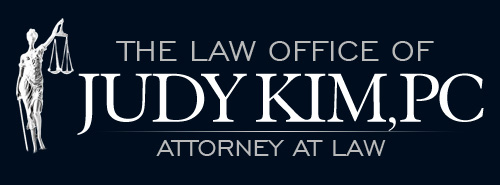More than ever, people are using the internet to communicate with one another, and the results have been phenomenal. In a day and age when computers, smart phones, and other transportable electronic devices allow for instant connection, the internet has gained even more prevalence in society. Unfortunately, the worldwide communication fostered by the internet has resulted in more than just long-distance connection. It has also led regulatory bodies to fear the illicit activity that might be occurring on the World Wide Web, particularly internet crimes such as cyberstalking.
Defense from an Atlanta Internet Crime Attorney
In reaction to the immense popularity of internet communications, federal and state governments have instituted laws to govern the activities of online users. Of particular concern is the issue of cyberstalking; specifically, using the internet, email, or any other form of electronic communication for the purpose of stalking someone else. Patterns of cybertalking usually involve malicious behavior, including the use of threats. In fact, the National Conference of State Legislatures (NCSL) considers cyberbstalking to be the most dangerous form of internet harassment. Therefore, persons who have been accused of this offense should immediately seek the counsel of a legal professional such as Atlanta criminal defense lawyer Judy Kim.
Why were you charged?
Internet activity is now a dominant form of communication among individuals throughout the world, whether two people live in the same town or thousands of miles apart from one another. The confusion with cyberstalking often lies in the misbelief that the crime can only occur between a stranger and another targeted individual. This, however, is no longer the case. Although some cyberstalkers remain anonymous, many more are personal acquaintances with their victims.
Friends and enemies alike have been accused and charged for cyberstalking, regardless of whether or not their behaviors were intentional. In fact, on more than one occasion, persons have been criminally charged for a crime of this nature without realizing that their behaviors were criminally offensive in any way. To better understand the aspects of cybertalking, a breakdown of its key factors is listed below:
- Attempted gathering of information: A person who approaches the friends, family, or colleagues of another person to gain personal information about them can be classified as a cyberstalker.
- Making false accusations: A person who intentionally tries to damage another person’s reputation by posting false information about that person can be classified as a cyberstalker.
- Monitoring the online activities of another: A person who attempts to trace another person’s IP address in order to gather more information about that person can be classified as a cyberstalker.
- Attacking personal data and equipment: A person who attempts to damage another person’s computer by sending a virus can be classified as a cyberstalker.
There are several other key factors involved with cyberstalking that could elicit criminal investigation, however, the aforementioned list details those that are less widely known as criminal activity among non-professionals. Whether or not there was malicious intent behind cyberstalking activity, defendants who’ve been accused of this crime need the strong defense of a legal professional on their side. If it can be proven that there was no malicious intent behind the internet activity, the defendant will have a much better chance at being relieved of his or her charges.
How Social Networking Sites Get Involved
Social networking is arguably the most popular of all recent internet trends, especially among teenagers and young adults. No one, however, is excluded from the suspicions that surround the use of social media outlets such as Facebook and Twitter. In fact, the act of stalking on Facebook has since come to be known as its own form of criminal activity, now specifically referred to as “Facebook Stalking.”
Unfortunately, many of the activities that have been categorized as Facebook cyberstalking are ones that are common occurrences among Facebook users worldwide. Cyberstalking on social networking sites includes, but is not limited to:
- Continually checking someone else’s profile page
- Logging on to a friend’s account to get more information
- Reading wall posts of people you don’t know
- Adding strangers as friends in order to obtain more information about someone else
Almost any Facebook or Twitter user would say that these are regular activities that are engaged in by themselves or their close friends. It seems that the legal definition of cyberstalking on social media outlets does not entirely coincide with users’ definition of cyberstalking. As a result, a person can easily be targeted for cyberstalking even when there was no such intention behind the actions that ultimately incriminated them.
Contact The Law Office of Judy Kim, P.C.
If you’ve been accused of cyberstalking, whether via email, Facebook, Twitter, or some other form of social media networking, you need The Law Office of Judy Kim, P.C. on your side. Aggressive in her defense, and skillful in the tactics that she employs on behalf of the clients she represents in court, Ms. Kim is fully prepared to tackle any allegation of cyberstalking in the Atlanta area. Whether you’ve been charged with a misdemeanor or felony offense for this type of internet crime, you can turn to her firm for the legal defense that you need and the attention that you deserve.
